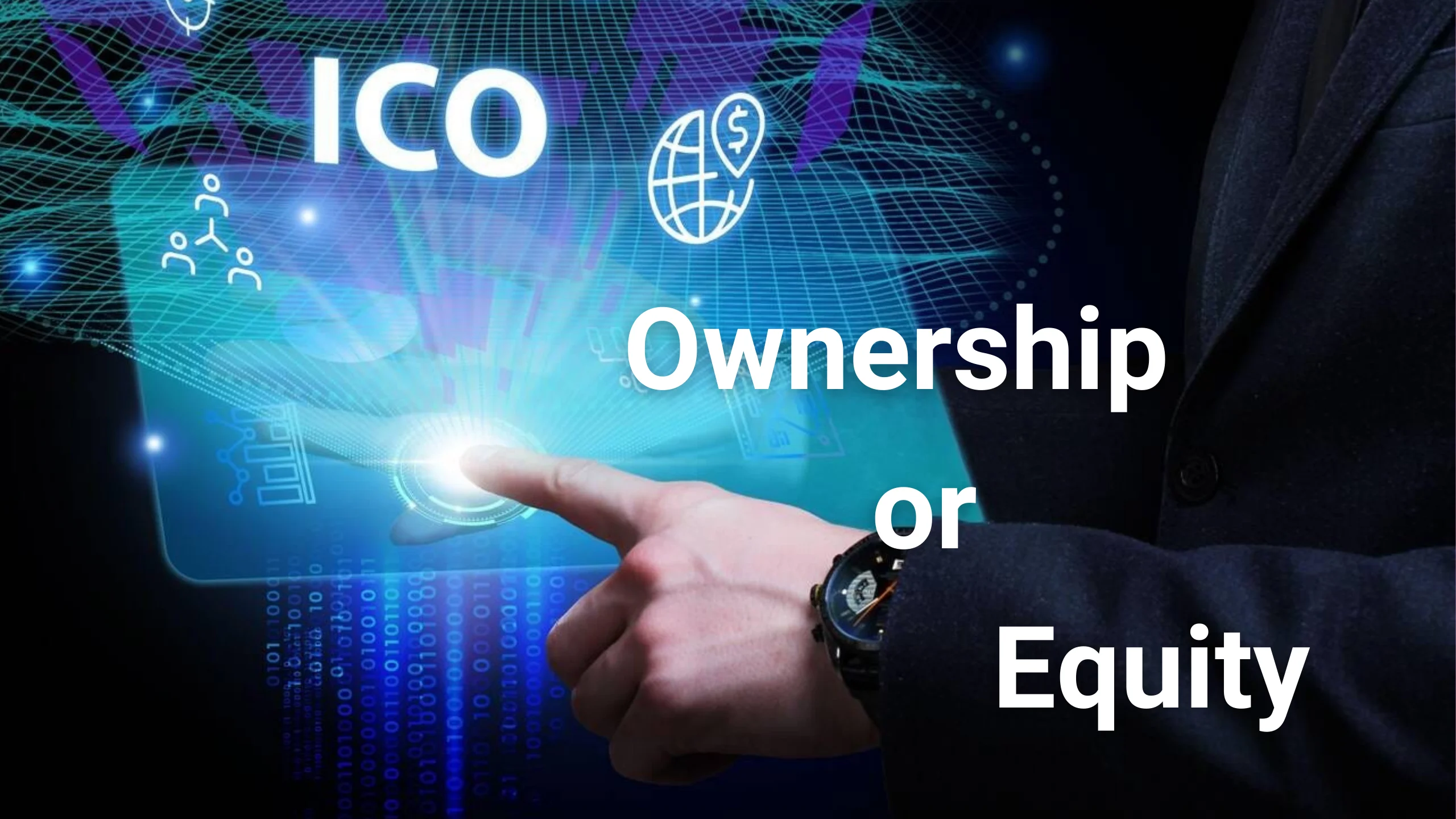Introduction
Myths
1. ICOs are a guaranteed path to quick and easy wealth.
Despite the allure of ICOs as a lucrative investment opportunity, many investors falsely believe that participating in token sales guarantees quick and easy profits. However, the reality is that ICOs are high-risk investments, with no guarantees of returns. According to a study by Satis Group, nearly 80% of ICOs conducted in 2017 were identified as scams or failed projects, highlighting the significant risks associated with investing in token sales.
2. ICOs are unregulated and operate in a legal gray area.
While ICOs have historically operated with minimal regulatory oversight, there is a common misconception that they are entirely unregulated and operate in a legal gray area. In reality, regulatory authorities worldwide have increasingly scrutinized ICOs and imposed regulations to address concerns about investor protection, fraud, and market integrity. According to a report by the Blockchain Association, regulatory enforcement actions against ICOs have been on the rise, with regulatory agencies cracking down on non-compliant token sales and fraudulent projects.
3. ICOs are suitable for all types of projects and businesses.
Another prevalent misconception about ICOs is that they are suitable for all types of projects and businesses, regardless of their stage of development or viability. While ICOs offer a novel fundraising mechanism for blockchain projects, they are not suitable for every venture. According to research by ICORating, a significant percentage of ICO projects lack a viable product or business model, leading to project failure or investor disappointment. It’s essential for entrepreneurs and investors to critically evaluate the feasibility, scalability, and market demand for their projects before launching or participating in an ICO.
Many investors mistakenly believe that participating in an ICO grants them ownership or equity in the issuing project, similar to traditional equity investments. However, ICO tokens typically represent access to products, services, or functionalities within the project’s ecosystem, rather than ownership or equity stakes. According to a study by the University of Luxembourg, the legal status of ICO tokens varies by jurisdiction, with regulatory authorities applying different classifications and regulatory frameworks based on the characteristics and use cases of the tokens.

4. ICOs guarantee ownership or equity in the issuing project.
5. ICOs are immune to market volatility and economic downturns.
A common misconception about ICOs is that they are immune to market volatility and economic downturns, offering a safe haven for investors seeking refuge from traditional financial markets. However, ICOs are highly susceptible to market dynamics, sentiment shifts, and external factors that can impact investor confidence and token prices. According to data from CoinDesk, ICO fundraising activity has been subject to fluctuations in response to market conditions, regulatory developments, and investor sentiment, highlighting the interconnectedness of ICOs with broader market trends.
6. ICOs are a one-size-fits-all fundraising solution.
While ICOs have gained popularity as a novel fundraising mechanism for blockchain projects, there is a misconception that they are a one-size-fits-all solution for raising capital. In reality, the suitability of ICOs depends on various factors, including the project’s stage of development, target market, regulatory environment, and fundraising goals. According to a report by Deloitte, ICOs may not be the most appropriate fundraising option for all projects, as they entail significant risks, uncertainties, and regulatory considerations that must be carefully evaluated and mitigated.

7. ICOs are the only way to raise capital in the blockchain industry.
Despite their prominence in the blockchain industry, ICOs are not the only way to raise capital for blockchain projects. Alternative fundraising mechanisms, such as Security Token Offerings (STOs), Initial Exchange Offerings (IEOs), and traditional venture capital funding, offer viable alternatives for projects seeking capital. According to data from CoinGecko, the popularity of ICOs has waned in recent years, with a growing number of projects exploring alternative fundraising avenues that offer regulatory compliance, investor protections, and market credibility.
8. ICOs are always transparent and trustworthy.
While ICOs are often touted as transparent and trustworthy fundraising mechanisms, there is a misconception that all ICO projects operate with integrity and honesty. In reality, the ICO market has been plagued by fraudulent schemes, scams, and malicious actors seeking to exploit unsuspecting investors. According to research by Diar, a significant percentage of ICO projects have been identified as scams or fraudulent schemes, highlighting the importance of due diligence, research, and skepticism when evaluating ICO investment opportunities.
One of the common misconceptions about ICOs is that they guarantee immediate liquidity and trading opportunities for investors. While ICOs provide an opportunity for investors to acquire tokens, liquidity can be limited immediately following the token sale. ICO tokens may not be listed on exchanges immediately after the ICO, and even when they are, trading volume and liquidity can be relatively low. According to research by ICObench, only a fraction of ICO tokens achieve significant trading volume and liquidity on secondary markets, with many tokens experiencing low trading activity or price volatility.
9. ICOs guarantee immediate liquidity and trading opportunities

10. ICOs offer guaranteed returns and investment stability.
Some investors mistakenly believe that participating in ICOs offers guaranteed returns and investment stability, akin to traditional investment vehicles such as bonds or stocks. However, ICOs are speculative investments that involve significant risks, including project failure, regulatory uncertainty, market volatility, and technological risks. According to a study by the University of Cambridge, a substantial percentage of ICO projects fail to deliver on their promises or achieve sustainable growth, leading to investor losses and disappointment.
11. ICO ratings and reviews provide reliable investment guidance.
While ICO ratings and reviews are commonly used by investors to assess the credibility and potential of ICO projects, there is a misconception that they provide reliable investment guidance. In reality, ICO ratings and reviews are often subjective and may be influenced by conflicts of interest, biases, or undisclosed incentives. According to research by ICORating, a significant percentage of ICO ratings and reviews lack transparency, independence, and methodological rigor, leading to discrepancies and inconsistencies in the assessment of ICO projects.
12. ICOs are free from regulatory scrutiny and compliance obligations
Another common misconception about ICOs is that they are free from regulatory scrutiny and compliance obligations, allowing projects to operate without regulatory oversight or legal consequences. However, regulatory authorities worldwide have increasingly targeted ICOs for enforcement actions, investigations, and legal proceedings to address concerns about investor protection, fraud, and market integrity. According to data from the SEC, regulatory enforcement actions against ICOs have resulted in penalties, fines, and sanctions against non-compliant projects and individuals involved in fraudulent token sales.

13. ICOs are a decentralized and trustless fundraising mechanism.
While ICOs are often associated with the principles of decentralization and trustlessness inherent in blockchain technology, there is a misconception that ICOs themselves are decentralized and trustless fundraising mechanisms. In reality, ICOs involve centralized decision-making and governance structures, with project teams controlling key aspects of the token sale process, including token issuance, distribution, and allocation of funds. According to research by TokenData, a significant percentage of ICO projects exhibit centralized control and management, raising concerns about transparency, accountability, and decentralization in the ICO market.
14. ICOs are immune to market manipulation and fraud.
Some investors mistakenly believe that ICOs are immune to market manipulation and fraud, assuming that blockchain technology inherently prevents fraudulent activities and unethical behavior. However, the decentralized and pseudonymous nature of blockchain technology does not guarantee immunity from fraudulent schemes, scams, or market manipulation. According to research by Chainalysis, a significant percentage of ICO funds have been lost or stolen due to hacking, phishing, Ponzi schemes, and other fraudulent activities, highlighting the need for investor education, due diligence, and regulatory enforcement in the ICO market.
15. ICOs are a "get-rich-quick" scheme with minimal effort
One common misconception about ICOs is the belief that they offer a “get-rich-quick” opportunity with minimal effort required from investors. This misconception often stems from the hype surrounding successful ICO projects and the perception that investing in ICOs can lead to significant financial gains overnight. However, successful ICO investments require thorough research, due diligence, and risk assessment. According to a study by Ernst & Young, the majority of ICO projects fail to deliver long-term value or sustainable growth, underscoring the importance of cautious and informed investment decisions.

There is a misconception that ICOs are a guaranteed way to fund any blockchain project, regardless of its viability, credibility, or market demand. While ICOs offer a novel fundraising mechanism for blockchain startups, they are not suitable for all projects. According to research by CoinDesk, a significant percentage of ICO projects fail to achieve their funding goals or attract investor interest due to factors such as lack of a viable product, weak value proposition, or poor execution. It’s essential for project teams to critically evaluate their project’s readiness, market fit, and fundraising strategy before launching an ICO.
16. ICOs are a surefire way to fund any blockchain project
17. ICOs are a substitute for traditional fundraising methods
Some entrepreneurs mistakenly believe that ICOs are a substitute for traditional fundraising methods, such as venture capital funding or bank loans. While ICOs offer an alternative fundraising avenue for blockchain projects, they come with unique risks, challenges, and regulatory considerations that may not be suitable for all ventures. According to research by CB Insights, traditional venture capital investors have become increasingly cautious about investing in ICO projects due to concerns about regulatory uncertainty, market volatility, and project viability. It’s essential for entrepreneurs to consider the pros and cons of ICOs compared to traditional fundraising methods and choose the approach that best aligns with their business goals and strategic objectives.
18. ICOs are a one-time fundraising event with no ongoing obligations
Another misconception about ICOs is the belief that they are a one-time fundraising event with no ongoing obligations or responsibilities for project teams. In reality, ICOs require ongoing communication, engagement, and transparency with token holders, investors, and regulatory authorities. According to research by Deloitte, successful ICO projects prioritize investor relations, community building, and project updates to maintain investor confidence and support. Project teams must fulfill their commitments, deliver on their promises, and adhere to regulatory requirements to ensure the long-term success and sustainability of their projects.
19. ICOs are the only way to distribute tokens and raise capital in the blockchain industry
While ICOs have been a dominant fundraising mechanism in the blockchain industry, there is a misconception that they are the only way to distribute tokens and raise capital for blockchain projects. In reality, alternative fundraising methods, such as Security Token Offerings (STOs), Initial Exchange Offerings (IEOs), and token presales, offer viable alternatives to ICOs. According to data from TokenData, the popularity of ICOs has declined in recent years, with a growing number of projects exploring alternative fundraising avenues that offer regulatory compliance, investor protections, and market credibility. It’s essential for project teams to evaluate the pros and cons of different fundraising methods and choose the approach that best suits their project’s needs and objectives.

Contact Us
Share a few details about your project, and we’ll get back to you soon.
Let's Talk About Your Project
- Free Consultation
- 24/7 Experts Support
- On-Time Delivery
- sales@sdlccorp.com
- +1(510-630-6507)
